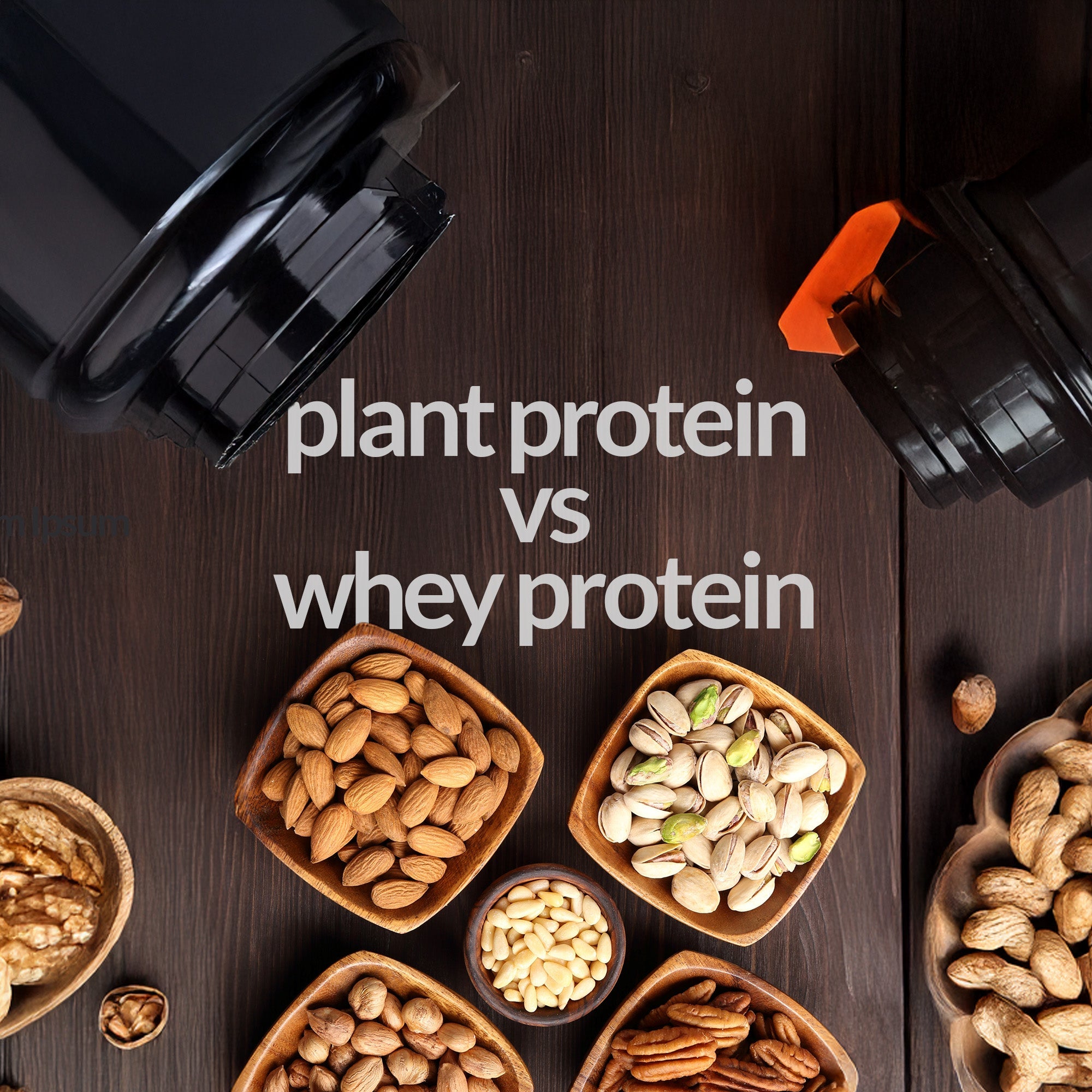
Plant-Based vs. Whey Protein: Choosing the Superior Nutritional Solution
Feeling Overwhelmed in the Supplement Aisle?
If you’ve ever stood in the supplement aisle feeling overwhelmed by protein options, you’re not alone. The protein powder section can feel like a maze of conflicting claims and confusing labels. Today, I want to have an honest conversation about two popular choices: whey protein and plant-based protein. By the end of this, you’ll have the clarity you need to make the best choice for your body and lifestyle.
Let’s Start with What You Already Know
You probably already understand that protein is important. It helps build muscle, repairs tissues, and keeps you feeling satisfied after meals. But here’s what the supplement companies don’t always tell you: the source of your protein matters just as much as the amount.
The Whey Protein Story
Whey protein has been the gold standard for decades, and for good reason—it’s effective. Derived from milk during cheese-making, whey protein is complete, meaning it contains all the essential amino acids your body needs. But here’s where things get interesting.
If you’re among the 65% of people worldwide who struggle with lactose intolerance, whey protein might be working against you. Many people who thought they just had “sensitive stomachs” later realized their protein powder was the culprit behind their bloating and digestive discomfort.
Beyond digestive issues, there’s another factor: whey protein comes from an industry that’s incredibly resource-intensive. It takes about 1,000 gallons of water to produce just one gallon of milk. When you think about it that way, your daily protein shake starts to feel like a pretty big environmental footprint.
Why Plant-Based Protein Changed Everything
Plant-based proteins aren’t just an alternative to whey—they’re often a superior choice. Let me explain why.
One common myth is that plant proteins are incomplete. This isn’t true anymore. Modern blends combine sources like pea, hemp, and rice to create complete amino acid profiles that rival whey protein.
Research has shown that pea protein can build muscle just as effectively as whey protein. The key is strategic blending. Plus, plant proteins come with added benefits: fiber, antioxidants, and phytonutrients that nourish your body beyond protein.
The Digestive Difference
This is where plant-based proteins shine. They’re naturally easier on your digestive system—no lactose, no dairy allergens. They even support your gut microbiome rather than disrupting it. Many people who struggled with whey finally found relief after switching to plant-based options.
Let’s Talk About Performance
You might wonder about muscle building and recovery. The research is clear: plant-based proteins support muscle growth and recovery just as effectively as whey. Some studies even suggest they reduce post-exercise inflammation better than whey, leading to faster recovery times.
The Environmental Factor
Plant-based proteins also come with a dramatically smaller environmental footprint. They require less water, produce fewer greenhouse gases, and use less land. Choosing plant-based protein means you’re supporting both your health and the planet.
Making the Right Choice for You
So how do you decide? Ask yourself:
- How does my body respond to dairy products?
- Do I want protein that offers extra health benefits beyond muscle support?
- Do I care about the environmental impact of my food choices?
If you answered yes to any of these, plant-based protein might be the better option for you.
What Makes a Quality Plant Protein
Not all plant proteins are created equal. Look for products that:
- Combine multiple protein sources
- Are minimally processed
- Are transparent about their ingredients
At The Good Kind, we focus on creating plant proteins that are nutritionally complete, taste great, and mix smoothly.
The Bottom Line
Choosing between whey and plant-based protein isn’t just about muscle—it’s about aligning nutrition with your body’s needs and your values. Plant-based proteins deliver complete nutrition, better digestibility, and environmental sustainability without compromising effectiveness.
The future of nutrition is moving toward conscious choices, and plant-based protein is leading the way. Your body, your gut, and the planet will thank you for making the switch.
Choose wisely. Choose plant-based. Choose The Good Kind.
Share












